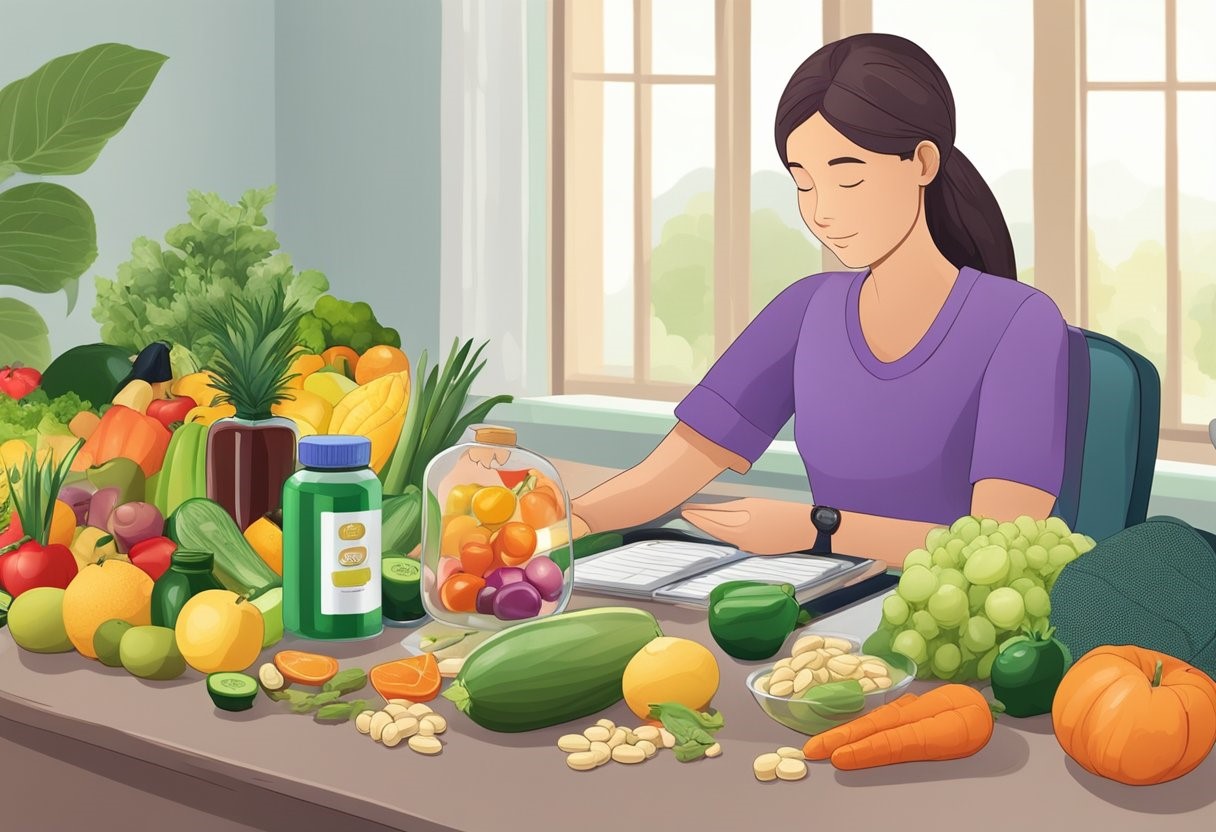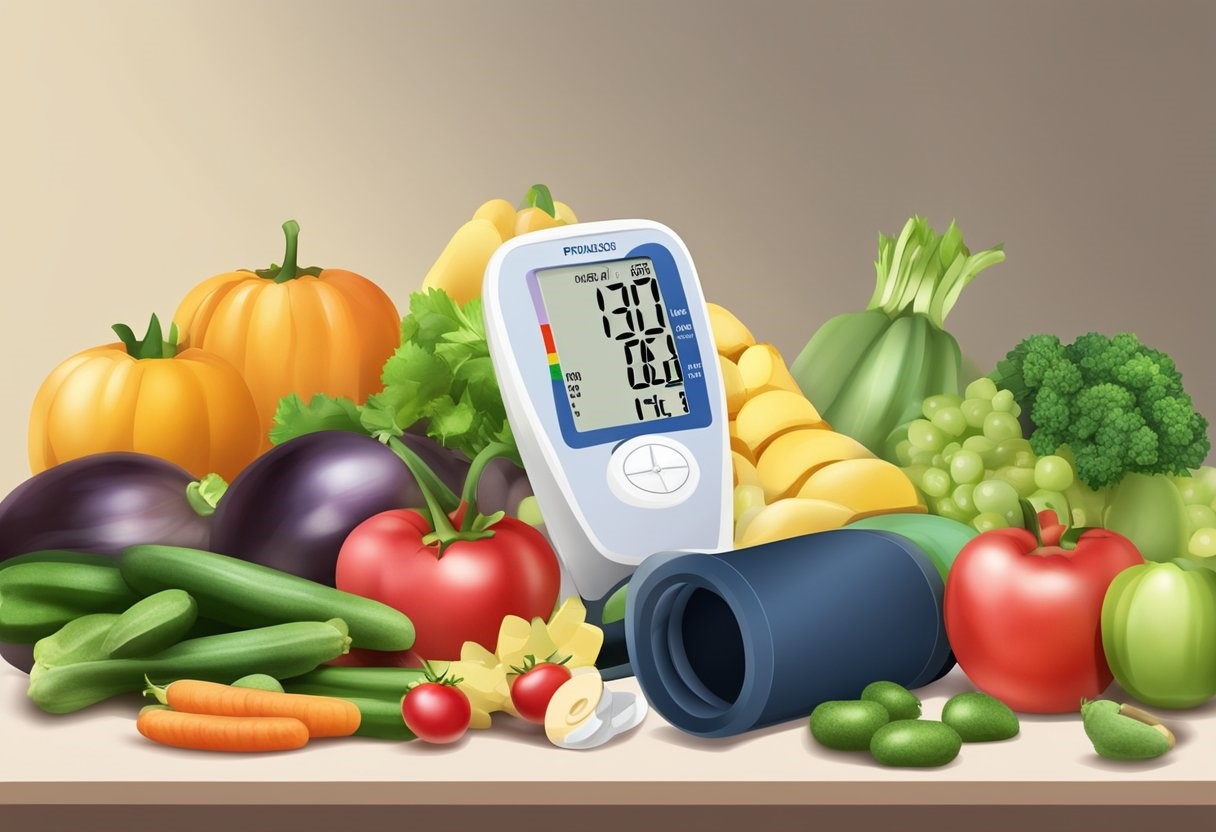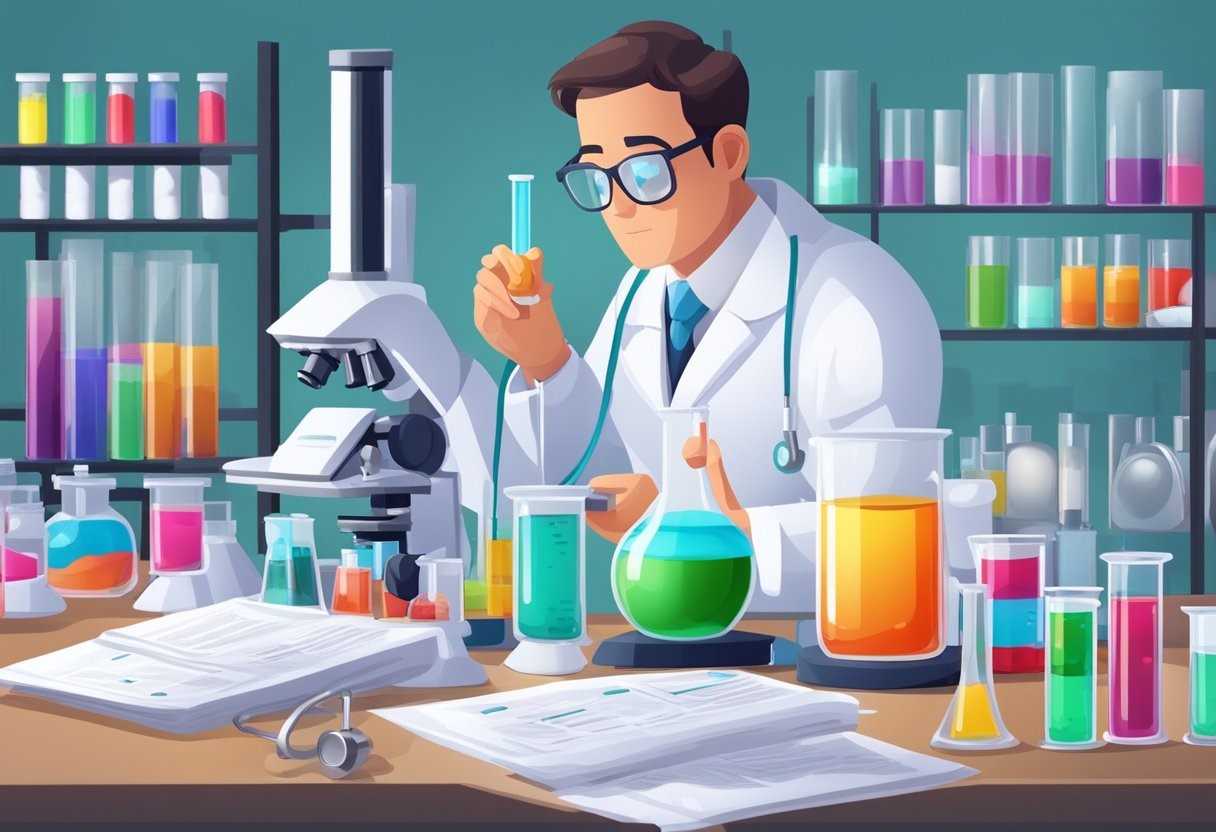









Free Shipping (WM) | Sign Up Biobay Membership for Free 50 Points & Exclusive Benefits
High blood pressure is a common health concern in Malaysia, affecting many adults. People often look for natural ways to manage their blood pressure alongside medication. Supplements can be a helpful addition to a healthy lifestyle for some individuals. Magnesium, vitamin D, and potassium are examples of supplements that may help lower high blood pressure. These nutrients play important roles in regulating blood pressure and supporting heart health. It's crucial to talk with your doctor before starting any new supplements, especially if you're already taking blood pressure medication. In Malaysia, there are several supplements available that target blood pressure control. For example, some products contain fish peptides, sesame extract, and antioxidants to support healthy blood pressure levels. While these may be helpful, it's important to remember that supplements should not replace prescribed medications or lifestyle changes.

Hypertension, or high blood pressure, is a serious health concern in Malaysia. It occurs when your blood pressure stays high over time. Your blood pressure has two numbers - systolic and diastolic.
Hypertension is defined as having systolic blood pressure of 140 mmHg or higher and/or diastolic blood pressure of 90 mmHg or higher.
High blood pressure puts extra strain on your heart and blood vessels. This can lead to serious health problems if left untreated:
- Heart disease
- Heart attacks
- Strokes
- Kidney damage
You may not feel any symptoms of high blood pressure. That's why it's called the "silent killer". Regular check-ups are crucial.
Several factors can increase your risk of hypertension:
- Being overweight
- High salt intake
- Lack of exercise
- Excessive alcohol consumption
- Smoking
- Family history
Hypertension is common among Malaysian adults. Age, body mass index (BMI), and diabetes are key risk factors.
Maintaining a healthy weight through diet and exercise can help prevent hypertension. Limiting salt and alcohol intake is also important.
If you have high blood pressure, your doctor may recommend lifestyle changes or medication. Treatment can help reduce your risk of serious health problems.

Many people in Malaysia turn to dietary supplements to help manage their blood pressure. These natural remedies are often used alongside prescribed medications or lifestyle changes.
Magnesium supplements are popular for their potential to relax blood vessels. You might find them in tablet or powder form at local pharmacies.
Omega-3 fatty acids, typically from fish oil capsules, are another common choice. They're believed to support heart health and may help lower blood pressure.
Garlic supplements are widely used in Malaysian households. You can find them as odourless capsules or in raw form at markets.
Potassium supplements are sometimes taken to balance sodium levels in the body. However, it's crucial to consult your doctor before using these.
Here's a quick list of other popular supplements:
- Coenzyme Q10 (CoQ10)
- Vitamin D
- Hibiscus tea
- Beetroot powder
Remember, while these supplements are common, their effectiveness can vary. Always chat with your healthcare provider before starting any new supplement regimen.

Certain supplements can help lower high blood pressure naturally. These work by supporting your body's cardiovascular functions in different ways.
Potassium is an important mineral in the regulation of blood pressure. It helps your body get rid of excess sodium through the urine. This removes the pressure in your blood vessels
You get potassium from foods such as bananas and avocados, but it is available in supplement form, too. The recommended daily intake is about 3,500-4,700 mg for adults.
Just be careful: too much potassium is toxic, particularly to the kidneys, in cases of kidney malfunction. Always consult your doctor before taking any supplement.
There are different forms of potassium supplements. Tablets, powders, and liquids are a few of them. Choose one that would perfectly fit your needs and your chosen style of living.
Magnesium is responsible for the relaxation of the blood vessels. This leads to a decrease in blood pressure. It also has other ways of supporting the health of the heart.
The daily recommended amount ranges from 310-420 mg for adults. You get this from such things as nuts and leafy greens. Most people don't get enough through their diet.
That is where supplements come in. They are available in different types; normally, magnesium citrate is well absorbed in the body.
Dosage starts low and increases cautiously to avoid gastrointestinal side effects like diarrhoea. Just like all supplements, you need to consult your doctor about it first. It is more important if you have kidney problems.
Traditionally, garlic has been used in medicine for centuries, and its benefits for heart health have now been confirmed by modern research.
Extract of garlic helps to reduce blood pressure. The reason it does so is because it makes the blood vessels flexible, hence making it easy on the arteries.
You can purchase garlic extract in either capsule or liquid form. The normal dosage is from about 600 to 1,200 mg per day. As stated above, the dosage does depend on the product.
Some people may experience bad breath or stomach upset. If this happens, attempt taking it with food. Or request odourless forms.
Just a reminder: garlic has interactions with some blood-thinning medications; therefore, ensure that you consult your doctor before starting to take any new supplements.

Recent studies have examined the effects of various supplements on blood pressure in Malaysia. The findings provide insights into potential natural approaches for managing hypertension.
A systematic review analysed the impact of herbal supplements on blood pressure. One notable study focused on beetroot juice and folic acid. The research involved 47 participants aged 50-70 with elevated blood pressure. They were given different combinations of high-nitrate beetroot juice, folic acid, and placebos over 60 days.
Results showed promising effects on blood pressure reduction. Beetroot juice, rich in nitrates, may help relax blood vessels and improve circulation. Folic acid also demonstrated potential benefits in supporting cardiovascular health.
Other studies have explored traditional Malaysian herbs like tongkat ali and misai kucing. While some showed promising results, more research is needed to confirm their effectiveness and safety.
When comparing different supplements, it's important to consider their unique mechanisms and potency. Here's a brief overview:
1. Beetroot juice: High in nitrates, may lower blood pressure by 3-10 mmHg
2. Garlic: Can reduce systolic pressure by 5-8 mmHg and diastolic by 2-5 mmHg
3. Fish oil: May lower blood pressure by 2-4 mmHg in some people
4. Hibiscus tea: Potential to reduce systolic pressure by 7-14 mmHg
It's crucial to note that effectiveness can vary between individuals. What works well for one person may have a different impact on another.
Supplements can influence blood pressure through various pathways in your body. Here are some key mechanisms:
1. Nitric oxide production: Beetroot juice and L-arginine increase nitric oxide, which relaxes blood vessels.
2. Sodium excretion: Some herbs, like dandelion, act as natural diuretics, helping your body remove excess sodium and water.
3. Antioxidant effects: Supplements like vitamin C and CoQ10 combat oxidative stress, which can damage blood vessels.
4. Calcium channel blocking: Certain herbs may mimic the action of calcium channel blocker medications, helping to relax arteries.
5. ACE inhibition: Some plant compounds can inhibit the angiotensin-converting enzyme, similar to common blood pressure medications.
Understanding these mechanisms can help you make informed decisions about which supplements might be most suitable for your needs.

Taking supplements alongside blood pressure medications can lead to unexpected effects. It's crucial to understand how these interactions may impact your health and treatment.
Some supplements can interfere with your blood pressure medications. Liquorice root can interact with diuretics and blood pressure drugs, potentially worsening side effects or causing serious issues like potassium imbalances.
Ginger and garlic supplements may increase the risk of bleeding when taken with blood thinners. Vitamin K can reduce the effectiveness of warfarin, a common blood thinner.
St. John's Wort is known to interact with many medications, including some used for high blood pressure. It may reduce their effectiveness or increase side effects.
Be cautious with caffeine supplements, as they can raise blood pressure and counteract your medication's effects.
These are some supplements that may interfere with the action of your blood pressure medications: Some can interact with your blood pressure medications and affect how well they work. Calcium/magnesium supplements might interact with calcium channel blockers and decrease their effectiveness.
Potassium supplements are dangerous if you're taking an ACE inhibitor (Helps relax veins and arteries) or an ARB (receptor blocker) because they can lead to too much potassium building up in your body.
Grapefruit juice-while not a herbal supplement in and of itself affects how your body processes some of the medications being used to help lower blood pressure. It might increase the concentration of that drug in your system and subsequently lead to side effects.
Always consult with your doctor before adding any new supplement, as they can advise on potential interactions specific to your medication regimen.
It's vital to tell your doctor about all the supplements you're taking. This includes vitamins, herbs, and over-the-counter products.
Your healthcare provider needs this information to:
- Assess potential interactions with your prescribed medications
- Adjust your treatment plan if needed
- Monitor for any adverse effects
Be honest about your supplement use, even if you think it's harmless. Some patients feel hesitant to disclose supplement use, but this information is crucial for your safety
Keep a list of all supplements and medications you take. Update it regularly and bring it to every doctor's appointment. This helps ensure your treatment plan is safe and effective.
Potassium supplements may help lower blood pressure, especially if your diet is low in this mineral. Magnesium and calcium can also have a positive effect. Omega-3 fatty acids from fish oil might reduce hypertension in some people.
Garlic and hibiscus tea have shown promise in some studies. However, it's crucial to remember that supplements shouldn't replace prescribed medications.
Always talk to your doctor before starting any new supplement regimen. They can advise on potential interactions with your current medicines and help you choose the most suitable options.
While some supplements can help manage high blood pressure, others can worsen the condition or interfere with medications. It's crucial to know which supplements to avoid if you have hypertension. Always consult your healthcare provider before starting any new supplement, especially if you’re taking blood pressure medication.
Why to Avoid: Licorice root contains glycyrrhizin, which can cause the body to retain sodium and lose potassium. This can lead to elevated blood pressure and even heart complications.
Risk Factors: High consumption can result in potassium depletion, water retention, and an increased risk of heart issues.
Common Uses: Found in herbal teas, candies, and supplements for digestive health.
Why to Avoid: Bitter orange contains synephrine, a stimulant similar to ephedra, which can raise blood pressure and heart rate.
Risk Factors: May cause heart palpitations, stroke, or heart attack when combined with caffeine or other stimulants.
Common Uses: Weight-loss supplements, energy boosters, and performance enhancers.
Why to Avoid: Ephedra contains ephedrine, a powerful stimulant that can raise blood pressure and heart rate significantly.
Risk Factors: Increases the risk of heart attack, stroke, and arrhythmia.
Common Uses: Weight-loss pills, energy supplements, and athletic performance enhancers.
Why to Avoid: This herb can interact with blood pressure medications, making them less effective or causing adverse reactions.
Risk Factors: Interferes with medications like calcium channel blockers, beta-blockers, and ACE inhibitors.
Common Uses: Supplements for depression, anxiety, and mood disorders.
Why to Avoid: Ginseng may interfere with blood pressure regulation by causing spikes in blood pressure.
Risk Factors: It can interact with antihypertensive medications and increase heart rate.
Common Uses: Energy-boosting supplements and immune system enhancers.
Why to Avoid: High doses of caffeine can cause temporary but significant increases in blood pressure.
Risk Factors: Can lead to heart palpitations, anxiety, and sleep disturbances.
Common Uses: Energy pills, pre-workout supplements, and weight-loss aids.
Managing high blood pressure effectively requires a combination of lifestyle changes, prescribed medications, and, in some cases, dietary supplements.
While supplements like magnesium, potassium, and garlic extract can support cardiovascular health, they should only be used alongside, not as a replacement for, medical treatments. Always consult your doctor before starting any new supplements to ensure they fit your personal health needs.
If you're exploring options for a supplement for high blood pressure in Malaysia, visit BioBay for more information on their wide range of health products designed to support overall well-being.
No, supplements cannot cure high blood pressure. They may help manage or lower readings when combined with medications, a balanced diet, exercise, and other lifestyle changes. It’s important to follow your doctor’s advice for comprehensive treatment.
Some supplements can interact with blood pressure medications. Always consult your doctor before adding any new supplement to ensure it’s safe and won’t reduce the effectiveness of your current treatments.
The time frame varies by individual and supplement type. Some people notice improvements in a few weeks, while others may need several months. Consistency and adherence to other healthy habits often influence how quickly you see changes.
Generally, supplements are available over-the-counter. However, consulting with a healthcare professional before starting any supplement is always recommended, especially if you’re managing high blood pressure.
Many reputable brands are available in Malaysia. Look for products tested by third-party organizations or recommended by healthcare professionals. Reading reviews and checking for quality certifications can also guide you in selecting a reliable brand.
Supplements should not be your sole strategy. A balanced diet low in sodium, regular exercise, stress management, and monitoring your blood pressure regularly are all crucial components. Supplements may help support these efforts, but they don’t replace them.
